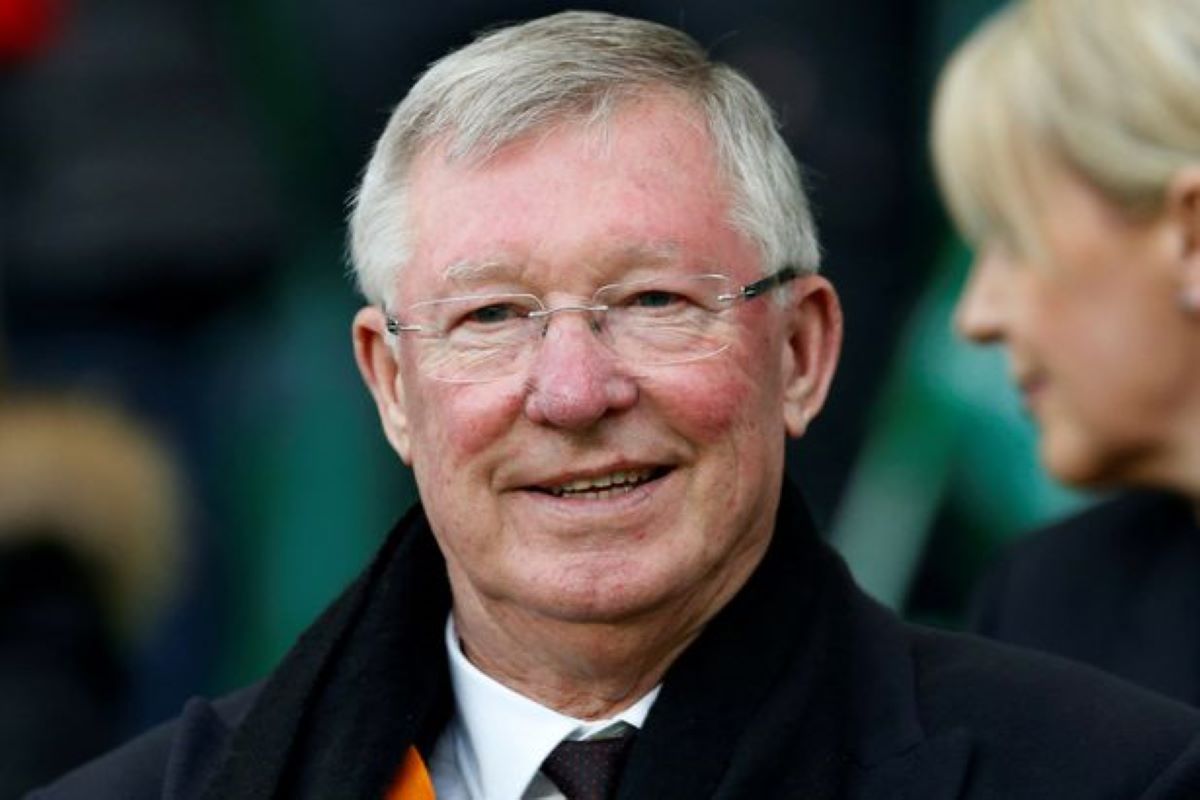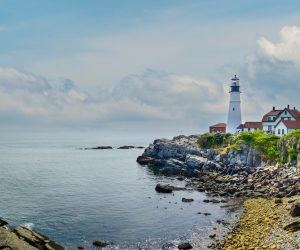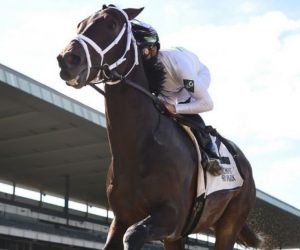The sight of Sir Alex Ferguson anywhere in the Liverpool city limits is one guaranteed to boil the blood of any Liverpudlian. The man once considered evil incarnate when he was leading Manchester United to 13 Premier League titles in 26 seasons – often at the expense of Liverpool – is now getting into the heads of the city’s horseplayers.

Meet Sir Alex Ferguson, horse owner. More specifically, part-owner of this week’s Grand National contender, Give Me A Copper.
That’s right. Sir Alex doesn’t need to stalk the visiting sidelines of Anfield to take up the penthouse suite in the heads of Liverpool punters. Not this week at Aintree. Ferguson is one of five owners of the Irish horse, trained by Paul Nicholls. And thanks to Ferguson’s iconic stature among United fans, it’s a given that the Fergie Factor will draw money to an otherwise undistinguished horse.
Give Me A Copper last ran in January, when he was pulled up in a Class 1 Doncaster race at 11/1. That translates into DNF or Did Not Finish. He ran only once in 2020, finishing second at 13/2 in a Class 2 2-mile, 7-furlong, 214-yard race at Doncaster. His last win came in a 3-mile, 1-furlong race at Ascot in November 2019, where he went off at 5/1.
Give Me A Copper tests bookmakers’ mettle
The 11-year-old chestnut gelding has two wins and a second in nine Chase starts.
Earlier this week, Give Me A Copper was as low as 33/1 at one UK book. He’s now anywhere from 50/1 to 66/1. By comparison, favorite Cloth Cap is as low as 7/2. He’s in danger of becoming the lowest-priced favorite in the Grand National’s 182-year history.
But then there’s the Fergie Factor. That scares more than a few books, wary of rogue money following one of the greatest coaches in the history of team sports. Rupert Adams, William Hill’s racing expert, told The Star “If Fergie wins, we will not be paying out in coppers. We will be handing over bundles of notes.â€
Sir Alex brings the Fergie Factor to bettors
“Given United’s incredible support, their fans, and his wider adoring public will no doubt latch onto Give Me A Copper,†Paddy Power spokesman Paul Binfield told The Star.
Ferguson didn’t discover horse racing after he retired as United’s manager in 2013. He inherited his love of the sport from his father. While he was filling United’s trophy case with 38 pieces of silverware, including two Champions League titles, Ferguson was a presence at UK racetracks and stables. He was a regular at the Cheltenham Festival and attended numerous Breeders’ Cups in the US.
And the manager known for delivering his notorious “hair-dryer†– his verbal airing-out of errant players – brought that same competitive irascibility to the racetrack. Nicholls, who has trained several of Ferguson’s horses over the years, told the Evening Standard that Ferguson abhors losing.
“There’s a certain amount of pressure when Sir Alex is involved and he’s there watching the horses with his pals,†Nicholls said. “He’s a born winner and likes to win – the same as me – but there’s only so much you can do from the stands once the horse is running.â€
Rock of Gibraltar gave Ferguson a taste of the big-time
Ferguson’s most famous horse is Rock of Gibraltar, who won a world-record seven consecutive Grade/Group 1 races throughout 2001 and 2002. Domedriver snapped the streak in the 2002 Breeders’ Cup Mile. Ferguson was a part-owner of the 2002 European Horse of the Year, along with Susan Magnier. She is the wife of breeding giant Coolmore Stud owner John Magnier.
Rock of Gibraltar won more than £1.16 million over his career. But even nearly 20 years after he retired to stud, the horse carries notoriety in some circles. He’s blamed for the Glazer family owning Manchester United.
The story goes back to the dawn of the century, right before Rock of Gibraltar began his racing career. John Magnier and J.P. McManus, two wealthy businessmen, owned a chunk of Manchester United shares. That gave them a front-row seat for United’s domination of the Premier League and Ferguson front-row access to shares of horses like Rock of Gibraltar.
A fateful conversation changed the course of football
The horse ran in Ferguson’s red and white Manchester United colors, and Ferguson was listed as a part-owner of the stallion. In 2001, Magnier and Ferguson talked about Rock of Gibraltar and his future as a stallion, which promised to be a lucrative one.
Here’s where the disagreement began. Magnier disputed Ferguson’s ownership. The United manager sued, claiming he was entitled to half of Rock of Gibraltar’s breeding rights. Translation: the manager of the most successful soccer team in the world just sued the two men who owned the biggest share of the most successful soccer team in the world.
The suit was settled out of court, with Magnier paying Ferguson £2.5 million. The Sun reported that Ferguson was offered four stud nominations a year for the rest of the horse’s life, but he passed. Not one of the iconic manager’s better transactions, considering Rock of Gibraltar would produce 130 graded/group stakes winners. And considering many of his offspring sold for six-figures.
Ferguson navigated turbulent waters by winning
Meanwhile, while this soap opera played out, US billionaire and Tampa Bay Buccaneers owner Malcolm Glazer was quietly buying up shares of Manchester United. In May 2005, he offered to buy out Magnier’s and McManus’ 28.7% of the club.
A month later, Glazer added the world’s most popular football club to his portfolio. And Magnier and McManus reportedly made upwards of £70 million in profit from the nearly £800 million sale.
That boiled the blood of Manchester United fans for reasons ranging from xenophobia at an American buying an iconic English club to the way the Glazers financed the purchase. They borrowed much of the money to purchase the club, racking up interest payments in excess of £60 million a year.
But nobody blamed Ferguson. He kept bringing trophies to Manchester United. And he kept bringing frustration to Liverpool fans, who wouldn’t lift the Premier League trophy until 2020, seven years after Ferguson retired to a life of watching — and playing — and owning horses.











